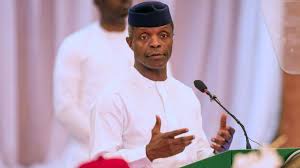It is no news that many economies including Nigeria are currently in recession. In reality, 2020 was eventful, chiefly with the novel coronavirus. Its impact has continued to have a severe impact on businesses, households, and economies globally. One of its consequences is inflation. Even though inflation is a concept that affects all of us, most importantly, high inflation could be hostile to economy and business especially the micro, small and medium enterprises (MSMEs). With a persistent inflation, businesses and households usually perform poorly, and expectedly more money is paid for the same goods and services. This has been the troubling trend in Nigeria in recent times, where high price increases have been recorded in transport, food cost, household needs, raw materials, pharmaceutical products, health care, motor cars, vehicle spare parts, equipment, and in prices of services amongst others. Admittedly, inflation erodes our value of money and also erodes the purchasing power of all of us. Therefore, the nexus of impact of inflation is the specific focus of this piece. However, it was mainly instigated by the continuous rise in the level of inflation rate in Nigeria in recent times. The consequences and impact of inflation (price instability) in Nigeria cannot be over-emphasised. Key amongst the consequences of inflationary pressure is the persistent decrease in the purchasing power of the citizens especially at a time when the economy is in recession and pandemic is ravaging.
Inflation is simply seen as a persistent rise in the general price level of the broad spectrum of goods and services in a country over a long period. Largely, when prices of energy, food, commodities, goods, and services go up, it hurts all of us and hardship is heightened. A major driver of Nigeria’s headline inflation has been the consistent rise in food cost. Agreeably, the inflation rate is determined by calculating the percentage change in a price index such as consumer price index (CPI), wholesale price index (WPI), and producer price index (PPI), etc in an economy. The commonly used metric is the Consumer Price Index (CPI) which measures the change in income a consumer needs to maintain the same standard of living over time. That is, the CPI is the economic measure that tracks changes in the cost of living over time. It is simply a more acceptable means of measure of inflation or price movements in an economy.
Therefore, because the CPI is available on a more frequent basis, it is mostly in use for monetary policy purposes even by the Central Bank of Nigeria when determining inflation rate. The data from the National Bureau of Statistics reveals that the headline inflation rate in Nigeria rose for a 15-straight month to 14.89% in November 2020 from 14.23% in October 2020, meanwhile, as against 13.71% recorded in September 2020. With this metric, the 14.89% rate is the highest recorded in the country since March 2018 which is over a two-year high and is a cause for concern.
Significantly, history and literature present some other factors adduced for the unsustainable economic growth in Nigeria apart from the high inflation rate, recession, and impact of COVID-19 include propensity to consume more and save less, decrepit infrastructure and poor policy implications, among others. Regrettably, these issues can further compound and manifest in areas we already have deficit as a nation, like staggering unemployment, rising cost of living, bleak business continuity, poverty increase, illiteracy, and crimes.Based on the aforementioned and from the inflationary perspective, to achieve adequate price stability in the country, the government needs to reduce budget deficit, and adopt significant structural policy reforms with monetary and fiscal policies. Such as reducing import duties on some essential items and commodities and so on. This will help to control inflation and maintain stronger growth rates in terms of improved Gross Domestic Product and to stabilise the tide of inflationary pressures on the economy and in business operations. It is advocated that political leaders should minimise avoidable public spending, reduce spending on non-development activities, address insufficient infrastructure, and build strong and effective institutions. The massive growth and developmental challenges of the country can improve by also promoting the human and SME ecosystem. The SME sector can play a major role in the economic growth of the country through the distribution of wealth, poverty reduction, and job creation. The sector is labour-intensive and can provide a reasonable reduction in the unemployment rate in the country. The government needs to provide an adequate enabling environment and support for the sector to strive.




